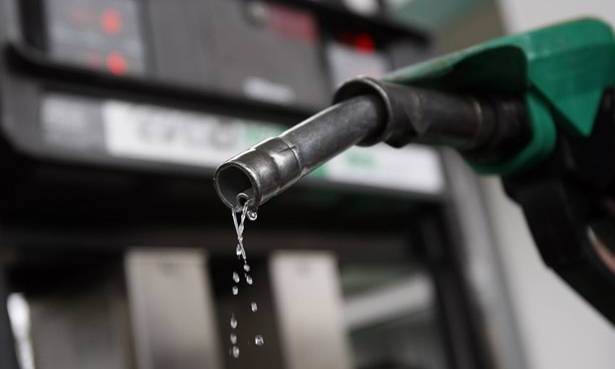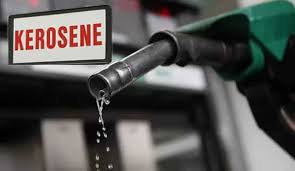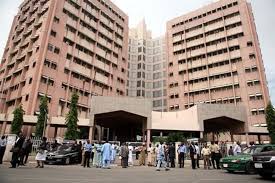By Odinta Oluma Christiana
Pipelines and Products Marketing Company, PPMC, a subsidiary of the Nigerian National Petroleum Corporation, NNPC, earned N132.04 billion from the sale of white petroleum products in the month of July 2017.
The NNPC, in its July 2017 Monthly Financial and Operational Report disclosed that the PPMC revenue for July represented a decline of 9.34 per cent compared to N142.65 billion recorded in the previous month.
White petroleum products comprise Premium Motor Spirit, PMS, also known as petrol; Dual Purpose Kerosene, DPK; and Automotive Gasoline Oil, AGO, also known as diesel. Specifically the PPMC, in July, earned N116.95 billion from the sale of PMS; N9.52 billion from the sale of diesel and N5.56 billion from the sale of Kerosene.
In volume terms, the report stated that a total of 1.122 billion litres of white products were distributed and sold by PPMC in the month of July 2017 compared with 1.206 billion litres in the month of June 2017, comprising 1.003 billion litres of PMS, 41.67 million litres of Kerosene and 77.24 million litres of Diesel. The report added that total revenues generated from the sales of white products for July 2016 to July 2017 stood at N1.848 trillion, where PMS contributed about 85.34 per cent of the total sales with a value of N1.577 trillion.
Also, the report disclosed that the refineries recorded an operational deficit of N8.52 billion in the month under review. It stated: “The NNPC has been adopting a Merchant Plant Refineries Business Model since January 2017.
ALSO SEE: Gunmen invade IDP camp, kill 27
The model takes cognizance of the products worth and crude costs. The combined value of output by the three refineries (at import parity price) for the month of July 2017 amounted to N24.83 billion while the associated crude plus freight costs and operational expenses were N24.13 billion and N9.21 billion respectively.
“This resulted in an operating deficit of N8.52 billion by the refineries. Also, during the period under review, refineries combined capacity utilization was 11.94 per cent with Port Harcourt Refining Company, PHRC, recording the highest capacity utilisation of 24.18 per cent.”
As a result of the unimpressive performance of the refineries and the decline in earnings from the sale of the petroleum products among others, the NNPC recorded a significant drop in its top and bottom line figures in the month under review. Particularly, its operating revenue for July declined by 8.9 per cent to N269.3 billion, compared to N295.75 billion recorded in June, while its trading deficit worsened to N11.87 billion, compared to a deficit of N5.19 billion.
The report stated, “Group operating revenue for the months of June 2017 and July 2017 were N295.75 billion and N269.30 billion respectively. These represent 79.54 per cent and 73.23 per cent respectively of monthly budgets. Similarly, operating expenditure for the same periods were N300.98 billion and N281.18 billion respectively, which also represents 94.74 per cent and 88.52 per cent of budget for the months respectively.
“The NNPC recorded a trading deficit of N11.87 billion which is an additional loss of N6.68billion relative to the previous month’s deficit of N5.19 billion.”
The NNPC blamed the unimpressive performance of its downstream operations on the high crude oil inventory and the shutdowns of the Kaduna Refinery and Petrochemical Company, KRPC, and the Warri Refinery and Petrochemical Company, WRPC, during the period.
It added that the non-availability of some of the major secondary units in PHRC in July 2017 accounted for the non-production of some light end product with the corresponding increase in operating expenditure, OPEX, as a result of several maintenance interventions.
“Other drags to this month’s performance includes shut down of Trans Niger Pipeline and production shut-in to Que Iboe terminal and Bonga Terminal. Other drags to performance includes shut down of Trans Niger Pipeline and production shut-in to Que Iboe terminal and Bonga Terminal,” it explained.

 Health5 days ago
Health5 days ago
 Entertainment7 days ago
Entertainment7 days ago
 Crime5 days ago
Crime5 days ago
 Education7 days ago
Education7 days ago
 Health7 days ago
Health7 days ago
 Comments and Issues6 days ago
Comments and Issues6 days ago
 Football6 days ago
Football6 days ago
 Latest6 days ago
Latest6 days ago











